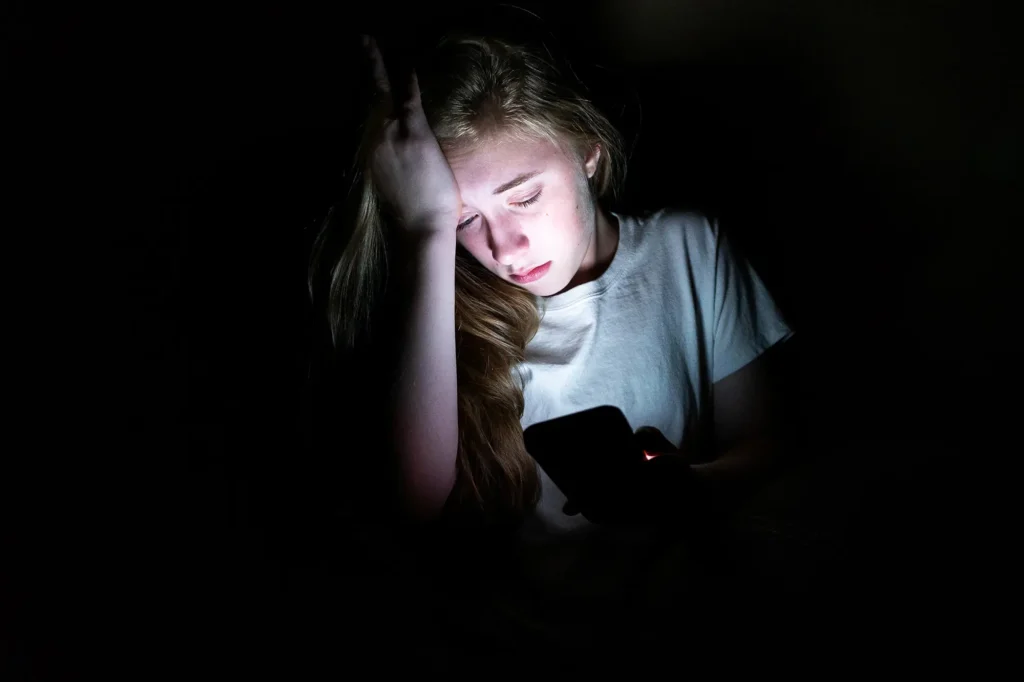Risk factors of suicidal thoughts are increasing day by day. In today’s digital age, screens have become an integral part of our lives, and children are increasingly exposed to screens from a young age. From smartphones and tablets to laptops and video game consoles, screens are ubiquitous in children’s lives, with many spending hours each day on various devices. However, recent research has raised concerns about the negative impact of excessive screen time on children’s mental health, including an increased risk of suicidal thoughts. In this article, we will explore the connection between too much screen time and suicidal thoughts in children, and discuss the potential risks and strategies for mitigating them.
The prevalence of screen time among children
Screens have become a pervasive presence in children’s lives, with many kids spending hours each day engaging with screens for various activities, such as playing video games, watching videos, browsing social media, or doing schoolwork. According to a study published in JAMA Pediatrics, the average screen time for children aged 8 to 12 increased from 2.5 hours per day in 1999 to nearly 5 hours per day in 2017. With the advent of remote learning during the COVID-19 pandemic, screen time has further increased for many children as online classes and virtual interactions became the norm.
The link between screen time and mental health
Research has shown that excessive screen time can have detrimental effects on children’s mental health. Spending too much time in front of screens can lead to sedentary behavior, sleep disturbances, decreased physical activity, and reduced social interaction, all of which can contribute to mental health issues in children. Additionally, the content children are exposed to on screens, such as violent video games, cyberbullying on social media, or distressing news, can also impact their emotional well-being.
Suicidal thoughts in children and adolescents
Suicidal thoughts, also known as suicidal ideation, refer to thoughts about or plans for ending one’s life. While suicidal thoughts are relatively rare in young children, they can occur in adolescents, and the rates have been increasing in recent years. The National Institute of Mental Health has reported that suicidal ideation, or thoughts of suicide, is a significant risk factor for suicide attempts, and it is the second leading cause of death among adolescents aged 15 to 19 years old in the United States.
The role of screen time in suicidal thoughts
Emerging research suggests that excessive screen time may be a risk factor for suicidal thoughts in children and adolescents. A study published in the journal Clinical Psychological Science found that adolescents who spent more time on screens, particularly social media, were more likely to experience suicidal ideation. Another study published in JAMA Pediatrics found that prolonged screen time was associated with increased risk of depression and suicidal ideation in adolescents. The connection between screen time and suicidal thoughts may be related to several factors, including the negative impact of screen time on mental health, disrupted sleep patterns, cyberbullying, and social isolation.

Strategies for mitigating the risks:
As parents and caregivers, it’s important to take steps to mitigate the risks of too much screen time on children’s mental health and well-being. Following are some steps that can help:
- Set limits: Establish clear rules and limits on screen time for children, taking into consideration their age, developmental stage, and individual needs.
- Monitor content: Be aware of the content your children are exposed to on screens and ensure it is age-appropriate and aligned with their values.
- Encourage healthy habits: Promote healthy habits such as regular exercise, good nutrition, and sufficient sleep. Physical activity and outdoor play can help counteract the sedentary nature of screen time and improve mental well-being.
- Be a role model: Children often emulate the behavior of their parents and caregivers. Set a positive example by managing your own screen time and demonstrating healthy habits.
Related searches: Negative impacts of social media on mental health
By taking these steps, we can help our children develop a healthy relationship with screens and promote their overall mental health and well-being.



